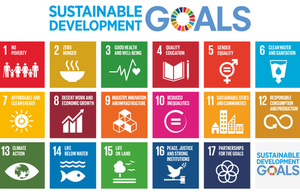People experiencing homelessness set to benefit from new jobcentre support
The Department for Work and Pensions has developed the training for Jobcentre Customer Service Managers with guidance from expert organisations, including Crisis, Homeless Link and Shelter.
The new coaching is aimed at ensuring people experiencing homelessness, and those at risk of becoming homeless, get access to all relevant services offered by the department.
The managers will also act as a point of contact for partner homelessness organisations in their local area, focusing on building relationships with them and ensuring people are signposted appropriately to additional, expert support.
This is in addition to the support already available, which includes helping homeless people to verify their ID to set up claims for benefits, assistance with opening bank accounts and pausing requirements to look for work so they can concentrate on finding stable housing.
Will Quince, Minister for Family Support, Housing and Child Maintenance, said:
“People experiencing homelessness are some of the most vulnerable in society and we are determined to help them access the best possible support and improve their lives.
“Our jobcentre work coaches do an excellent job providing a tailored service for homeless people, including finding secure housing and helping them claim Universal Credit. Our newly trained Customer Service Managers will be instrumental in sharing best practice and building crucial links to local organisations and to ensure a joined-up package of support for our claimants.”
John Sparkes, Chief Executive at Crisis, said: “Homelessness is something we know can be ended across the country with the right policies and solutions in place. The Jobcentre Plus network has a pivotal role to play in this; especially in identifying and responding to people’s housing needs quickly, ideally before they become homeless in the first place.
“The roll out of training to all staff represents a positive first step in ensuring people facing homelessness receive the right support at a time when they need it most. By helping to shape this training we hope it will ensure that front line jobcentre staff are better equipped work with people experiencing homelessness. This also provides a good foundation for potentially growing housing and homelessness expertise amongst dedicated staff in local jobcentres where there is greatest homelessness demand.”
Training will be fully completed across Great Britain by the end of August.
Jobcentre Customer Service Managers provide crucial support to customers with complex needs and will support work coaches to identify and recognise the needs of people who are experiencing homelessness.
The delivery follows a pledge to do so in the government’s rough sleeping strategy.
Last year DWP created 2 guides specifically to help people experiencing homelessness access Universal Credit.
Media enquiries for this press release – 020 3267 5144
Follow DWP on:
